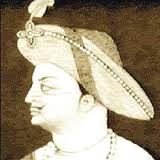 It was Chidananda Murthy, onetime researcher who opened his mouth first. Now BJP spokesperson and MLC Gomadhusoodan has done the same by stating that the state government will not allow 2,000 acres of land to be occupied for the University. Minister Suresh Kumar has also stated that the government will ‘analyze’ as to whether University should be built or not. BJP’s minority face Anwar Manippady has not said a word yet. Dharwad MP Prahlad Joshi has joined the chorus.
It was Chidananda Murthy, onetime researcher who opened his mouth first. Now BJP spokesperson and MLC Gomadhusoodan has done the same by stating that the state government will not allow 2,000 acres of land to be occupied for the University. Minister Suresh Kumar has also stated that the government will ‘analyze’ as to whether University should be built or not. BJP’s minority face Anwar Manippady has not said a word yet. Dharwad MP Prahlad Joshi has joined the chorus.
As Governor H R Bhardwaj said, “Tipu Sultan is a great patriot, a national hero”. The people of Karnataka agree with him. No one is against Tipu Sultan accept a few who have been struck by the RSS disease.
The RSS fears patriots because it did not participate in the freedom struggle. The ‘chaddis’ instead acted as agents of the British. The RSS cannot stand people like Mahatma Gandhi, Bhagat Singh and Tipu Sultan, who fought against the British.
Had Tipu Sultan entered into a compromise with the British, he would not have to give away his sons as hostages to the British and die fighting on the battlefield. His descendents would not have been begging on the streets in Kolkata today either. But Tipu chose not to shake hands with the British. His contributions to this land are immense. To bring about land reforms two centuries ago is no mean achievement.
Refusing offerings from Palegars, Tipu distributed lands which were in their possession among landless farmers. He believed that the cultivator, no matter which caste or religion he belonged to, must be the true possessor of the farming land. 39,000 tanks were built in his time. In his brief tenure, 35% of the land came under the cover of Neravari. It was Tipu who took the initiative to set up the Kannambadi dam.
The experimental man that he was, Tipu would send his ambassadors to various parts of the world to learn more about the newer technologies in agriculture and implement them in his kingdom. The credit for bringing foreign silk seeds to Karnataka goes to Tipu Sultan. Today, Karnataka stands first in the entire country when it comes to silk production. About 3 lakh soldiers were given lands during Tipu’s tenure. It helped in the rise of smaller farmers and feudalism took a beating.
Farmers from backward communities like Kuruba, Eediga, Vokkaliga, Beda, Lingayat etc, breathed a sigh of relief for having got a break from exploitation. It was Tipu’s effort that saw Bangalore’s Lal Bagh possess rare plants and trees as he brought them from various parts of the world.
There is a reason for RSS to hate Tipu. While he was a Muslim was one reason, that he was pro-Dalit was another. Prior to Tipu taking charge, Brahmin Mutts were the biggest feudal forces in Karnataka. These Mutts would exploit Dalits and Shudras who were in large numbers. Tipu clipped the wings of these Mutts and distributed the temple lands among Dalit farmers. British historian Buchanan has said “There were 500 Brahmin houses in Nanjangud. They owned lands which would bring them an income of 14,000 pagodas. In the same village were 700 Dalit and Shudra families. Although they worked on these lands, they had to live outside the village. Tipu broke this Brahmin dominance and set them a monthly income of mere 100 pagodas”.
The likes of Prahlad Joshi, Muthalik, Madhusoodan and other Sangh Parivar elements see this as an anti-Brahmin move of Tipu and cry over it. A senior communist leader of our country Late C Rajeshwar Rao has written a rare book describing Tipu Sultan’s contributions to India. Revolutionary and martyr Saketh Rajan has listed Tipu’s achievements in his research book ‘Making History’. The likes of Chidananda Murthy must read these books. Sangh Parivar elements will not read such books. But researchers like Chidananda Murthy must not be like them.
There is no need for any permission from the cane leaders of Sangh Parivar to set up Tipu Sultan University. Certain media outlets are giving publicity to these fringe elements who are out to seek Hindu vote bank in the name of Tipu University.
Recently, a Kannada TV channel held a discussion on the Tipu University issue. While Pramod Muthalik, Chidananda Murthy and advocate Devaraju spoke on behalf of Sangh Parivar, C S Dwarakanath and Murulasiddappa spoke in favour of Tipu Sultan. The TV show anchor did not give opportunity to Dwarakanath and Murulasiddappa to speak at all. The ‘Chaddi’ anchor attempted to end the programme by letting Muthalik and Chidananda Murthy have the last word. Dwarakanath and Murulasiddappa stated in the end that no matter who opposes the proposal, the Tipu Sultan University will come up.





Comments
So whenever you purchase an isle, you must start using about four
creatures for different components so you can begin breeding
better creatures.
my page: my singing monsters hack tool no survey 2015: http://www.yourbeardedgeeks.com/members/corrinefuentes/activity/217592/
Add new comment